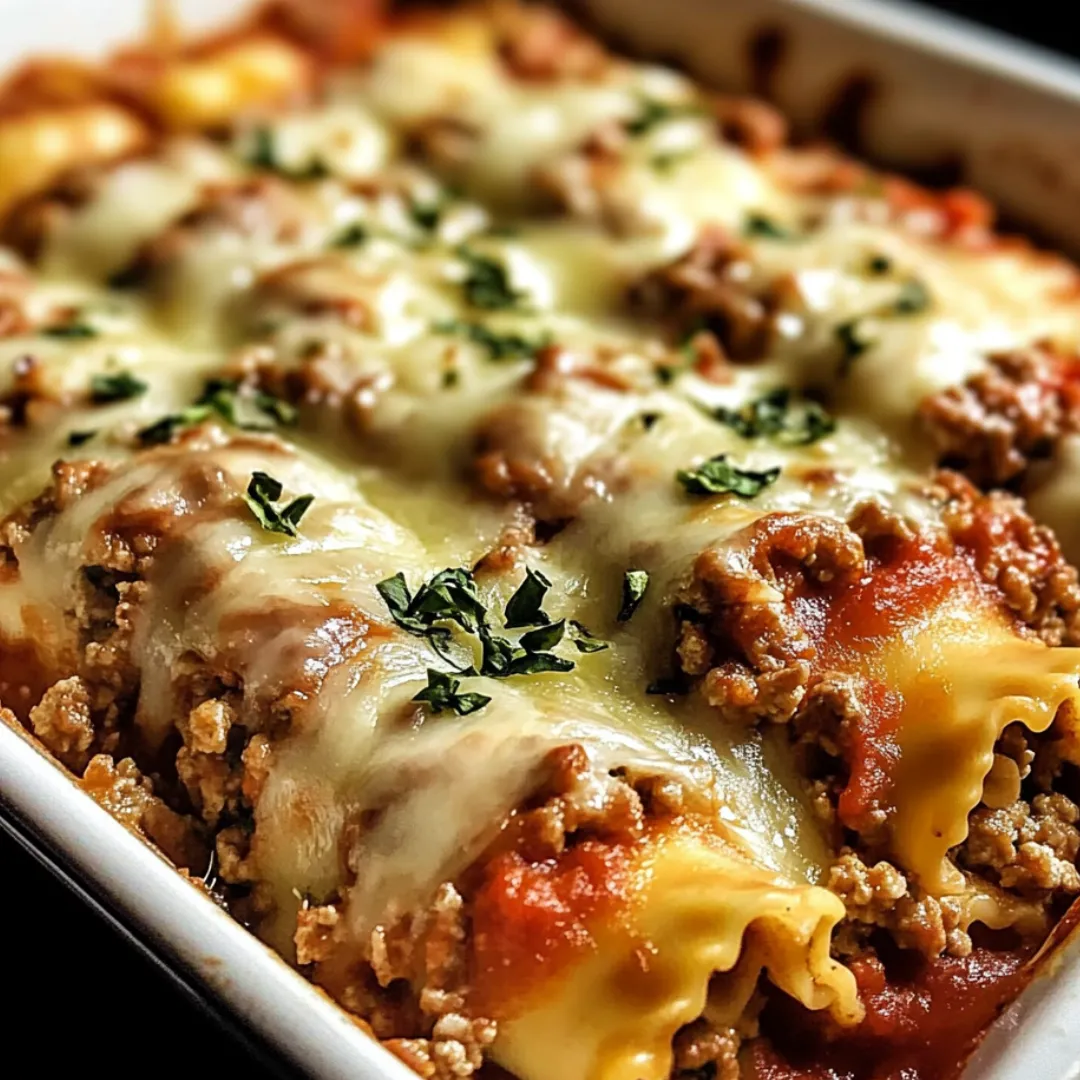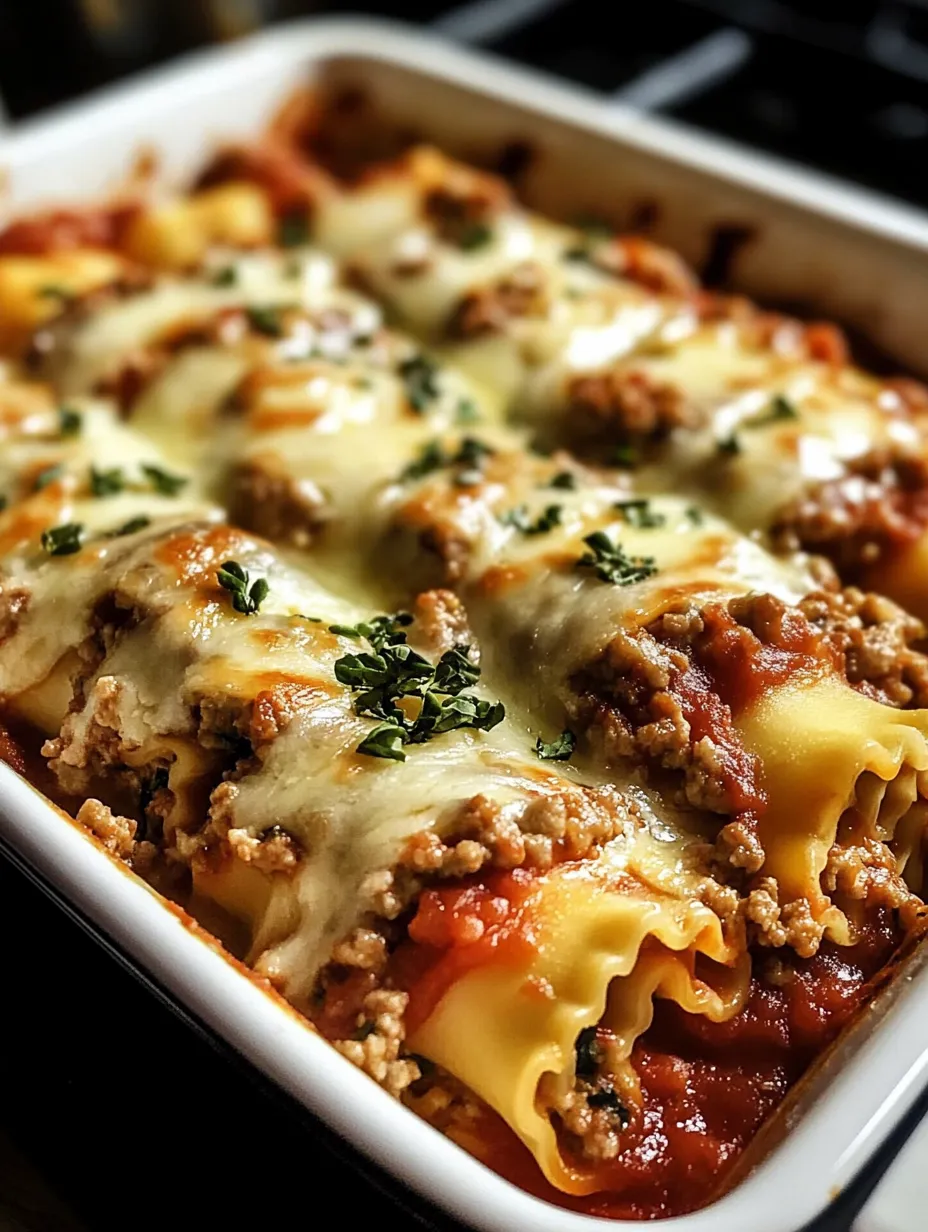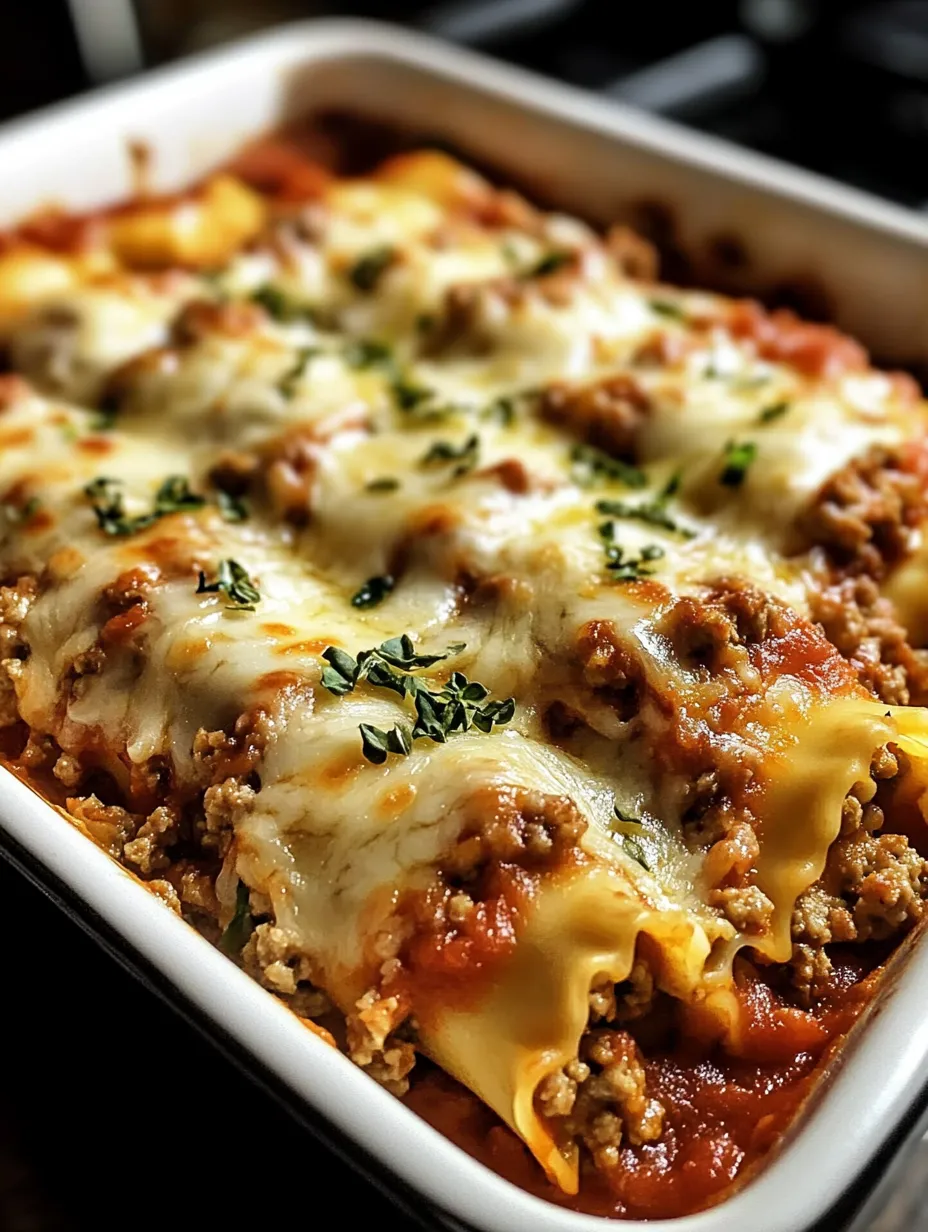 Pin it
Pin it
These lasagna roll ups transform the classic layered casserole into individual spirals of pasta filled with creamy ricotta and topped with savory marinara and melted cheese. Each rolled noodle creates a perfect portion that's easier to serve than traditional lasagna while delivering all the same comforting flavors. The spirals not only make a beautiful presentation but also ensure the perfect ratio of pasta, cheese, and sauce in every bite. Whether you're cooking for a family dinner, meal prepping for the week, or looking for a dish that freezes beautifully, these roll ups deliver Italian comfort food at its most convenient and delicious.
I started making these roll ups when my family couldn't agree on lasagna fillings - some wanted meat, others preferred vegetarian. The first time I served individually customized rolls, dinner conversations focused on sharing bites rather than arguing over preferences! What surprised me most was how much simpler serving became - no more messy, falling-apart squares of traditional lasagna. The neat spirals stayed perfectly intact, and everyone got equal amounts of the crispy edge pieces that are usually fought over. Now these roll ups are requested for both everyday family dinners and special occasions when we entertain guests.
Ingredients You'll Need
- 12 Lasagna Noodles: Creates the foundation for rolling. Regular (not no-boil) lasagna sheets work best as they're more pliable.
- 15 ounces Ricotta Cheese: Provides the creamy, rich filling base. Whole milk ricotta offers the best flavor and texture.
- 1 cup Mozzarella Cheese, shredded and divided: Delivers that classic stretchy, melty cheese pull. Fresh mozzarella can be substituted for a more delicate flavor.
- ½ cup Parmesan Cheese, grated: Adds savory depth and sharpness that balances the mild ricotta.
- 2 large Eggs: Binds the filling ingredients together, ensuring they stay put when rolled.
- 2 cloves Garlic, minced: Infuses the filling with aromatic flavor. Fresh is best, but pre-minced works in a pinch.
- 1 tablespoon Italian Seasoning: Provides herbaceous notes of oregano, basil, and thyme in one convenient blend.
- ½ teaspoon Salt: Enhances all the other flavors; adjust according to the saltiness of your cheeses.
- ¼ teaspoon Black Pepper: Adds subtle warmth and depth to the filling.
- 1 cup Spinach, chopped (optional): Incorporates nutrients and color. Fresh or frozen (thawed and squeezed dry) both work well.
- 2½ cups Marinara Sauce, divided: Provides moisture and rich tomato flavor. Store-bought is convenient, but homemade adds extra flair.
- Fresh Basil for garnish (optional): Adds bright, fresh flavor and a pop of color to the finished dish.
 Pin it
Pin it
Step-by-Step Cooking Instructions
- Prepare the Pasta:
- Begin by bringing a large pot of water to a rolling boil. Add a generous tablespoon of salt to the water – this is your opportunity to season the pasta itself. Carefully add the lasagna noodles one at a time to prevent sticking. Cook according to package directions until al dente, usually 8-9 minutes. They should be pliable enough to roll but still firm enough to hold their shape. Once cooked, drain the noodles and immediately lay them flat on a clean kitchen towel or parchment paper in a single layer. This prevents them from sticking together while you prepare the filling.
- Create the Cheese Filling:
- In a large mixing bowl, combine the ricotta cheese, ½ cup of the shredded mozzarella (reserving the other half for topping), grated Parmesan, eggs, minced garlic, Italian seasoning, salt, and pepper. Mix thoroughly until all ingredients are well incorporated and the mixture is smooth and uniform. If using spinach, ensure it's finely chopped and squeezed dry of any excess moisture before folding it into the cheese mixture. The filling should be thick and creamy but still easy to spread.
- Prepare the Baking Dish:
- Preheat your oven to 375°F (190°C) to ensure it's fully heated when you're ready to bake. Spread ½ cup of marinara sauce evenly across the bottom of a 9×13-inch baking dish. This layer of sauce prevents the roll ups from sticking to the dish and adds moisture to the bottom of the pasta as it bakes. The dish size is important – too large and the roll ups will slide around, too small and they'll be overcrowded.
- Assemble the Roll Ups:
- Lay a cooked lasagna noodle flat on your work surface. Using a spoon or offset spatula, spread approximately 3 tablespoons of the ricotta mixture evenly over the noodle, leaving about ½ inch at one end bare to help seal the roll. Starting from the end with filling all the way to the edge, carefully roll the noodle into a spiral. Place the roll seam-side down in the prepared baking dish. Repeat this process with the remaining noodles and filling, arranging the rolls in the dish so they fit snugly without being squished together.
- Add Sauce and Cheese:
- Once all the roll ups are in the baking dish, pour the remaining 2 cups of marinara sauce evenly over the top, ensuring each roll is covered with sauce. This prevents the pasta from drying out while baking and adds delicious tomato flavor. Sprinkle the reserved ½ cup of mozzarella cheese over the sauce, covering the rolls evenly. The cheese will melt and form a golden, bubbly topping as it bakes.
- Bake to Perfection:
- Cover the baking dish with aluminum foil, making it tight enough to seal in moisture but without touching the cheese topping. Place the dish in the preheated oven and bake for 20 minutes. This initial covered baking period allows the filling to heat through without the cheese browning too quickly. After 20 minutes, remove the foil and continue baking for an additional 10-15 minutes until the cheese is melted, bubbly, and beginning to turn golden in spots. The sauce should be visibly simmering around the edges.
- Rest and Serve:
- Once baked, remove the dish from the oven and let it rest for 5-10 minutes before serving. This brief resting period allows the filling to set slightly, making the roll ups easier to remove intact from the baking dish. Garnish with fresh basil leaves if desired. Use a spatula to carefully transfer individual roll ups to plates, spooning any extra sauce from the baking dish over the top.
I learned the importance of laying the noodles flat immediately after cooking from an Italian neighbor who watched me struggling with clumped-together pasta during my first attempt. Now I arrange them in a single layer on parchment paper as soon as they're drained, which makes assembly so much easier. Another game-changing tip was adding eggs to the ricotta mixture – my early versions had filling that leaked out during baking, but the eggs bind everything together perfectly. These simple adjustments transformed a good recipe into a foolproof family favorite.
Perfect Pairings
This versatile dish pairs beautifully with numerous sides. For a complete Italian meal, serve with garlic bread or breadsticks to soak up extra sauce and a crisp Caesar salad to balance the rich flavors. For a lighter option, roasted vegetables like asparagus, zucchini, or bell peppers complement the cheesy roll ups while adding nutritional value. A simple green salad with a tangy vinaigrette cuts through the richness and refreshes the palate between bites.
Creative Variations
One of the greatest attributes of lasagna roll ups is their adaptability. For meat lovers, add cooked and crumbled Italian sausage, ground beef, or shredded chicken to the filling. Vegetable enthusiasts can incorporate sautéed mushrooms, roasted red peppers, or artichoke hearts. For a white lasagna variation, replace the marinara with creamy Alfredo sauce and add cooked chicken and spinach to the filling. The individual rolls make it easy to create variety in a single pan – I often make half with meat and half vegetarian to please my entire family.
 Pin it
Pin it
Make-Ahead Instructions
These roll ups excel as a prepare-ahead meal. Assemble them completely, cover tightly with plastic wrap or foil, and refrigerate for up to 24 hours before baking. When ready to cook, remove from the refrigerator 30 minutes before baking to take the chill off, then bake as directed, adding 5-10 minutes to the cooking time. For longer storage, freeze unbaked roll ups (without the final sauce and cheese topping) in a freezer-safe container for up to 3 months. Thaw overnight in the refrigerator, add the sauce and cheese, then bake according to the recipe instructions.
I've made these roll ups countless times over the years, and I'm still discovering new ways to enhance them. My latest revelation was adding a layer of pesto between the ricotta and the noodle – the burst of basil flavor completely transforms the dish. Another favorite variation is mixing sun-dried tomatoes into the filling for sweet, intense tomato flavor in every bite. Perhaps the most practical discovery was making a double batch to freeze – having homemade lasagna roll ups ready to bake on busy weeknights has saved dinner countless times and tastes infinitely better than takeout.
Frequently Asked Questions
- → Can I make these vegetarian?
- Absolutely! Simply omit the ground beef and use chopped mushrooms, spinach, or zucchini instead. Sauté the vegetables until tender before mixing with the marinara sauce.
- → Why do my noodles tear when I try to roll them?
- Make sure not to overcook the noodles - they should be about 1 minute shy of al dente. Also, handle them gently and don't spread the filling too close to the edges.
- → Can I use no-boil lasagna noodles?
- It's not recommended as they aren't pliable enough to roll. Traditional lasagna noodles that you boil first work best for this recipe.
- → What's the best way to freeze these?
- Assemble completely but don't bake. Cover tightly with plastic wrap and then foil. Freeze for up to a month. Thaw in refrigerator overnight before baking as directed, adding 10-15 extra minutes.
- → Can I use cottage cheese instead of ricotta?
- Yes, drain the cottage cheese well and blend it briefly for a smoother texture. The flavor will be slightly different but still delicious, and it's often more budget-friendly.
